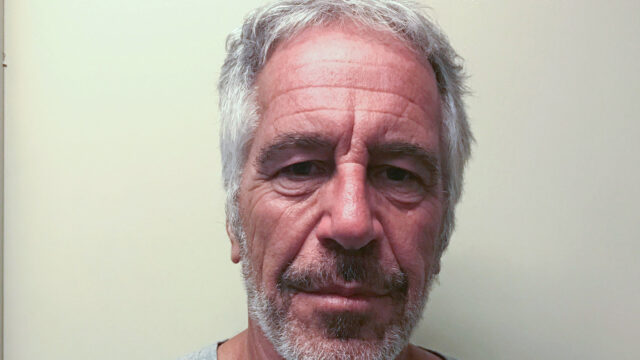‘No Evidence’ of Epstein Blackmail Operation Not Surprising

Jeffrey Epstein was the construct of intelligence agencies that know how to maintain silence and to cover their tracks.
When institutions and powerful individuals operate for long periods without scrutiny, they may be tempted to commit such outrageously corrupt acts that disclosing them to the people becomes an insurmountably difficult task.
For years there has been a lot of consternation about the refusal of federal agencies such as the CIA and FBI to disclose what they know about Jeffrey Epstein (as well as about the assassination of JFK, the 9/11 terrorist attacks, the murder of Seth Rich, and countless other stories). Guys like me have also noticed how the U.S. government, including Congress, can’t ever quite seem to get to the bottom of the origin of SARS-CoV-2.
The truth of these stories carries incalculable liabilities—liabilities that would call into question whether the involved institutions should be allowed to continue existing.
Disclosing the truth could also instantly demolish the persistent naïveté that enables most people to maintain their allegiance to their governments and to believe the endless train of BS that we are told every day about everything.
I have experience with big liability cases. For a long time I investigated the mysterious deaths of Mary Mahoney on July 6, 1997 in Georgetown and Seth Rich on July 10, 2016 in the Bloomingdale neighborhood of D.C. The circumstances of both deaths strongly raise the suspicion of a political motive, but both were nevertheless chalked up to “botched robberies” by the Metropolitan Police.
Someone with power doesn’t want either death elucidated, and I was advised that pursuing my investigations would not only be frustrating and fruitless, but hazardous for my health.
The totality of circumstances suggests that Seth Rich was murdered because he knew the DNC emails about to be published by Wikileaks were NOT hacked by Russian agents, but were leaked by a DNC insider. To eliminate the possibility of him bearing witness that there was no Russian hack, the decision was made to eliminate him.
Jeffrey Epstein was a much bigger problem, because he was apparently running a blackmail operation using beautiful underage girls who didn’t necessarily look younger than 18. Presented with a beautiful girl who appeared to be 18, most men probably stopped short of asking to see her valid government issued ID before dallying around with her (with hidden videos all over the place). God knows how many immensely powerful men in the United States and Britain were compromised.
Epstein was probably running the the same kind of trap that Mossad agent Eli Cohen ran against the Syrian political and military elite in the sixties and that bon vivant gangster Udo Proksch ran against the Austrian Socialist Party elite in the seventies.



The case of Udo Proksch is illustrative. Using an aristocratic girlfriend as his front woman, he acquired Cafe Demel—one of the most opulent coffee houses in Vienna and the former confectioner to the Imperial Court. He then converted the top floor of the building to house his CLUB 45, whose membership included all of the top ranking members of the Austrian Socialist Party, which held a virtual monopoly on federal power in the 1970s.
Proksch invited an old friend of mine to become a member, but my friend suspected that the clubhouse was a one-way mirror trap to which underage girls were invited to “entertain” Austria’s political and financial elite.

In 1977, Proksch committed a massive insurance fraud and mass murder by blowing up a ship called the Lucona—whose cargo he had insured—in the middle of the Indian Ocean. The insurance company smelled a rat and launched an investigation, but was frustrated by the total lack of cooperation from Austrian authorities. It was as though Proksch was untouchable. The only reason he was eventually exposed—twelve years after he committed his crime—was because the West German foreign intelligence service (Bundesnachrichtendienst) and the CIA were unhappy with him for transferring western technology to his friends in the Soviet Union.
These intelligence agencies shared their information on Proksch with the independent, Austrian journalist, Hans Pretterebner, who self-published a book on the affair in 1989 titled Der Fall Lucona (The Case of the Lucona).
The lesson from the story was clear: unless the intelligence agencies—who control politicians and civil servants—want a big story with major liabilities disclosed, it won’t be disclosed. All evidence of the conspiracy will disappear, and people like Pam Bondi, Dan Bongino, and Kash Patel will be left looking like fools.
https://www.thefocalpoints.com/p/no-evidence-of-epstein-blackmail
